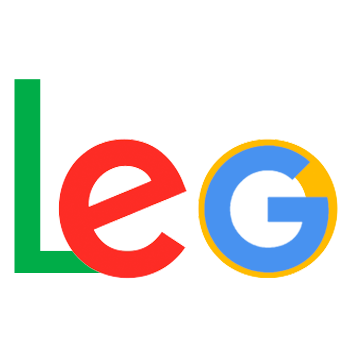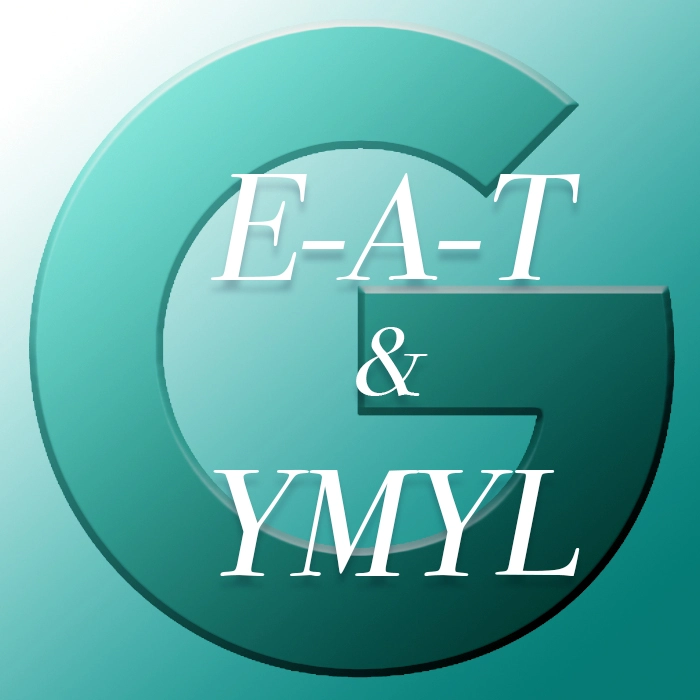In the world of Search engine optimization (SEO), two vital benchmarks for superior content quality are E-A-T and YMYL. Grasping these concepts is crucial for crafting content that thrives in search engine rankings, especially for impactful topics.
E-A-T stands for Expertise, Authoritativeness, and Trustworthiness
Google’s Search Quality Evaluator Guidelines, a blueprint used by human experts to appraise search results, establish E-A-T as a core principle of exceptional information. When evaluating a website, Google considers aspects like the background and qualifications of content creators, the site’s well-established reputation within its niche, and the content’s adherence to recognized best practices in the specific field.
YMYL, an abbreviation for Your Money or Your Life
refers to webpages or content that has the potential to significantly impact a user’s well-being. This encompasses areas like medical advice, financial guidance, legal information, and even content related to safety or critical life decisions. Because of the potential for real-world harm from inaccurate or misleading YMYL content, Google holds it to a stricter standard.
The connection between E-A-T and YMYL is clear
Google prioritizes surfacing trustworthy and credible sources for YMYL topics. As a result, for a YMYL website to secure high rankings in search results, it must demonstrably possess a strong E-A-T. This translates to content written by creators with relevant expertise, a website that showcases a strong reputation within its field, and well-researched, accurate, and up-to-date content.
Let’s delve deeper. Here’s how you can bolster your website’s E-A-T for YMYL topics:
- Craft content by qualified authors: Ensure your content is created by individuals with demonstrable expertise in the field. Include their credentials and background information to showcase their qualifications.
- Citaions and references: Support your content with citations from reputable sources and relevant academic journals. This demonstrates that your content is well-researched and reliable.
- Website reputation: Establish your website as a trusted authority in your niche. This can involve industry awards, positive reviews, and backlinks from high-quality websites.
- Regular updates: Regularly update your content to ensure it reflects the latest findings and best practices. This demonstrates your commitment to providing accurate and valuable information.
By prioritizing E-A-T throughout your YMYL content strategy, you can increase your website’s trustworthiness and credibility in the eyes of search engines and users alike. This will position you for greater visibility and improved SEO performance.
Difference Between EAT and EEAT
EAT and EEAT are very similar concepts in SEO, but EEAT adds an extra layer of focus. Here’s the breakdown:
EAT (Expertise, Authoritativeness, Trustworthiness):
- This is the original concept used by Google to assess the credibility of content and websites.
- It focuses on:
- Expertise: The knowledge and qualifications of the content creator.
- Authoritativeness: The reputation and recognition of the website within its field.
- Trustworthiness: The reliability and accuracy of the information presented.
EEAT (Experience, Expertise, Authoritativeness, Trustworthiness):
- This is a recent update to the concept, adding the element of experience.
- It builds on EAT by recognizing that:
- In some areas, firsthand experience strengthens content credibility.
- A medical doctor with practical experience can provide more valuable insights than someone who only studied medicine theoretically.
Here’s the key difference:
- EAT emphasizes factual knowledge and established reputation.
- EEAT emphasizes both knowledge and practical application.
Not all content requires EEAT:
- Content on less sensitive topics, like cat memes, might be well-ranked with strong EAT alone.
- However, for YMYL (Your Money or Your Life) topics like medical advice, EEAT becomes more crucial. Here, users rely on the author’s practical experience in addition to their theoretical knowledge.
EAT and YMYl Examples
E-A-T Examples
Expertise:
- A medical website with articles written by licensed physicians.
- A financial planning blog written by Certified Financial Planners (CFPs).
- A home repair website with content created by experienced contractors.
Authoritativeness:
- A well-established news publication with a history of accurate reporting.
- A government website with official information.
- A university website with scholarly articles by professors in their respective fields.
Trustworthiness:
- A website with transparent ownership and clear contact information.
- A website that cites credible sources to back up its claims.
- A website with positive reviews and testimonials from satisfied users.
YMYL Examples
Clear YMYL Topics:
- How to manage diabetes (medical advice)
- How to invest in the stock market (financial advice)
- How to write a will (legal information)
- How to change a car tire (safety information)
May be YMYL Topics (depending on context):
- Best apps for weight loss (could be considered health advice)
- How to choose a daycare center (could impact a child’s well-being)
- Reviews of home security systems (impacts safety)
Unlikely YMYL Topics:
- Top 10 cat memes of all time
- History of the frisbee
- Analysis of a pop song’s lyrics

